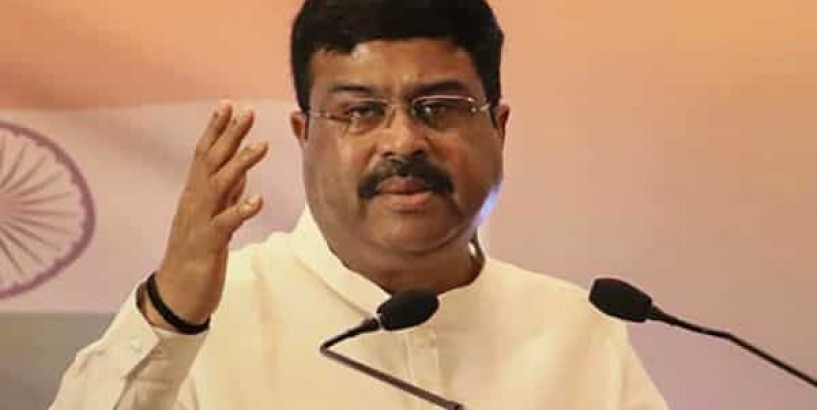New Delhi: India on Friday made a case for affordable oil prices at G20 energy ministers’ meeting, in the backdrop of the Organization of the Petroleum Exporting Countries-plus (Opec+) combine slashing production amid the Covid-19 pandemic.
This was articulated by India’s petroleum and natural gas minister Dharmendra Pradhan. India's message comes at a time of Opec+, including Russia, agreeing to cut production by 10 million barrels per day (mbpd) under US pressure to prop up prices.
With Opec accounting for 80% of India’s crude oil imports, any production cut by the so called Opec plus arrangement impacts India’s energy security efforts in the short run.
“He (Pradhan) appreciated the collective efforts of Opec and Opec-plus countries to balance the supply-side factors which is imperative for long-term sustainability. He has, however, urged that oil prices should be targeted to affordable levels to allow for a consumption-led demand recovery," the petroleum ministry said in a statement.
The G20 energy ministers’ meeting was chaired by Saudi Arabia’s energy minister Abdul Aziz Bin Salman, who had also chaired the Opec+ meeting on Thursday.
With its economy facing headwinds, India has been trying to impress upon Opec to not affect deeper crude oil production cuts. It has also been pitching for better commercial terms for crude oil imports.
“In terms of the ongoing energy market fluctuations, the Minister stated that India has always advocated for a stable oil market, which is reasonable for producers and affordable for consumers," the statement added.
The Opec + decision holds significance for India—the world’s third-largest oil importer and the fourth-largest buyer of liquefied natural gas. Opec accounts for around 40% of global production.
The fall in oil prices has placed major consumers, such as India, at an advantage; which is a key Asian refining hub. With global oil demand plunging due to rapid spread of the deadly coronavirus, prices have been in tailspin, giving an opportunity for India’s ambitious and costly Indian Strategic Petroleum Reserves (ISPR) programme.
“The Minister highlighted the decision of Hon’ble Prime Minister, under the aegis of the Ujjwala scheme, to provide 80.3 million poor families free LPG cylinders, as part of a 23 billion dollars relief package. He emphasized that India was, and will continue to be, the global energy demand centre. He also highlighted Government of India’s efforts to fill in our Strategic Petroleum Reserves," India’s petroleum ministry statement added.
Indian refiners have cut production as the lockdown has led to a sharp decline in demand for transportation fuels. Demand for domestic cooking gas has, however, increased as more people stay indoors during the lockdown aimed at containing the spread of the coronavirus.
“Today’s oil crisis is a systemic shock that threatens global economic and financial stability. It requires a global answer. This is why the G20 can be an indispensable forum for decisive leadership when it is urgently required," said Fatih Birol, International Energy Agency’s executive director, said in a statement.
India, which is one of the major Opec consumers, has always stood for a global consensus on “responsible pricing". Also, India has consistently been pitching for a price and terms correction on the so-called Asian premium. With most Asian countries being primarily dependent on West Asia to meet their energy needs, customers from the continent are seen paying the Asian premium as compared to the prices paid by the US or the European Union.
Analysts expect the global oil markets to face further volatility.
“The phone call from President Putin and King Salman to President Trump last evening was unexpected, and Trump said afterward in his press briefing that he would be 'going back into negotiations on oil' when it was completed," said Greg Priddy, director of middle east and energy at Austin-based Stratfor, a geopolitical intelligence platform in a statement.









